Introduction
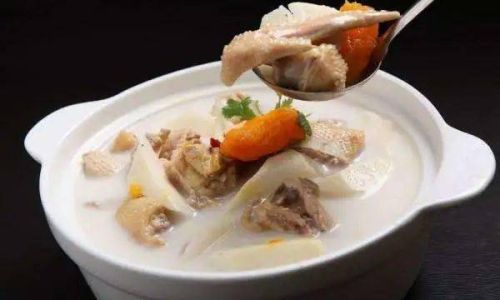
Duck soup, a culinary delight enjoyed across various cultures, is not just a comforting meal but also a repository of nutritional benefits. Rich in protein, vitamins, and minerals, duck meat, when cooked properly, can yield a broth that is both flavorful and beneficial to health. This article delves into the intricacies of brewing nutritious duck soup, highlighting the choice of ingredients, cooking techniques, and the nutritional perks associated with each step. By the end, you’ll be equipped with the knowledge to create a hearty, nourishing duck soup that satisfies both the palate and the body.
Choosing the Right Duck
The foundation of any good duck soup lies in selecting the appropriate duck. There are several varieties available, each offering distinct flavors and textures. For a nutritious and flavorful soup, opt for a free-range duck. Free-range ducks tend to have a richer flavor and are often healthier due to their diet and lifestyle. Look for ducks that are plump with firm, moist flesh and a good layer of fat. The fat not only adds depth to the soup but also aids in creating a silky, velvety texture.
Duck age is another crucial factor. Younger ducks tend to be more tender and have a lighter flavor, suitable for lighter soups. Older ducks, on the other hand, have a stronger, more robust flavor and are ideal for richer, heartier broths. Depending on your preference and the intended use of the soup, choose the duck accordingly.
Gathering Ingredients for Nutritional Balance
Once you have your duck, it’s time to gather the ingredients that will enhance both the taste and nutritional profile of your soup. Here are some essentials:
-
Vegetables: Carrots, celery, onions, and leeks are classic choices that add sweetness, depth, and essential vitamins and minerals. Carrots, rich in beta-carotene, contribute to eye health, while celery provides antioxidants and anti-inflammatory properties. Onions and leeks add a savory base and are rich in fiber and vitamins.
-
Aromatics: Garlic, ginger, and bay leaves are crucial for flavoring the soup. Garlic and ginger offer immune-boosting properties, while bay leaves add a subtle, earthy aroma.
-
Herbs: Fresh parsley, thyme, and rosemary can be added towards the end of cooking to preserve their fresh flavors. These herbs are packed with antioxidants and contribute to the overall nutritional value of the soup.
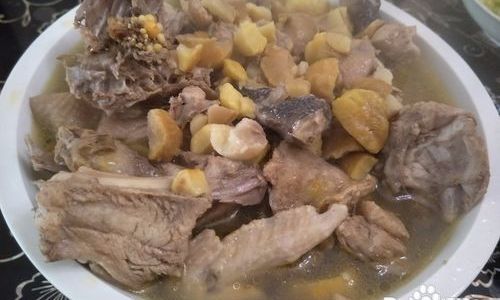
-
Liquids: Good-quality stock or broth forms the backbone of the soup. Chicken or vegetable stock can be used, depending on your dietary preferences. For an extra layer of flavor and nutrition, consider using homemade bone broth, which is rich in collagen, gelatin, and minerals.
-
Seasonings: Salt, pepper, and a touch of soy sauce or fish sauce can enhance the flavors without overpowering the duck.
Preparing the Duck
Before cooking, prepare the duck properly to ensure maximum flavor extraction and nutritional retention. Start by rinsing the duck thoroughly under cold running water. Pat it dry with paper towels to remove any excess moisture.
Next, trim any excess fat, especially from the neck and cavity areas. While some fat is beneficial for flavor, too much can make the soup greasy. Season the duck generously with salt and pepper, and optionally, with a sprinkle of herbs like thyme or rosemary.
Cooking Techniques for Optimal Nutrition
-
Searing the Duck: Begin by searing the duck in a hot, oven-safe pot or Dutch oven. This not only locks in juices but also caramelizes the exterior, adding layers of flavor to the broth. Use a small amount of oil to prevent sticking, and sear until the skin is golden brown and crispy.
-
Slow Cooking: Once seared, add chopped vegetables, aromatics, and enough liquid to cover the duck by about an inch. Bring the mixture to a simmer, then cover and transfer to a preheated oven set to a low temperature (around 300°F or 150°C). Slow cooking allows the duck to break down gently, releasing its juices and flavors into the broth. It also ensures that the vegetables cook slowly, preserving their nutrients.
-
Skimming the Fat: After a few hours of cooking, you may notice a layer of fat forming on the surface of the soup. Skim this off periodically to keep the soup light and healthy. Remember, while some fat adds flavor, too much can be unhealthy and detract from the overall experience.
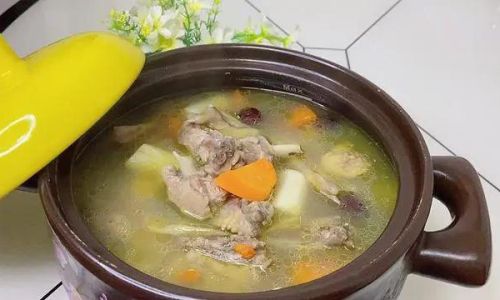
-
Taste and Adjust: After about 3-4 hours of slow cooking, check the duck for tenderness. It should be falling off the bone. Taste the broth and adjust the seasoning as needed. Add fresh herbs towards the end of cooking to preserve their vibrant flavors.
Serving and Enjoying Your Nutritious Duck Soup
Once the duck is tender and the broth is flavorful, it’s time to serve. Ladle the soup into bowls, ensuring each serving includes pieces of duck meat and plenty of vegetables. Garnish with freshly chopped parsley or a squeeze of lemon juice for an added burst of freshness.
Duck soup is incredibly versatile and can be enjoyed on its own or paired with a side of crusty bread, rice, or noodles. It’s perfect for cold winter nights, providing a warm, comforting hug that nourishes the body and soul.
Nutritional Benefits
Duck soup offers a myriad of nutritional benefits, making it a great addition to a balanced diet. Here are some highlights:
- High in Protein: Duck meat is an excellent source of lean protein, essential for muscle repair and growth.
- Rich in Vitamins and Minerals: The vegetables and herbs contribute vitamins A, C, K, and minerals like potassium, iron, and calcium.
- Antioxidants: The antioxidants present in garlic, ginger, and herbs help combat oxidative stress and support overall health.
- Collagen and Gelatin: Homemade bone broth adds collagen and gelatin, which are beneficial for skin, hair, nails, and joint health.
- Heart-Healthy Fats: The healthy fats in duck meat, particularly monounsaturated and polyunsaturated fats, contribute to heart health.
Conclusion
Brewing nutritious duck soup is an art that combines culinary skill with an understanding of nutrition. By selecting high-quality ingredients, preparing the duck properly, and employing slow cooking techniques, you can create a soup that is not only delicious but also packed with essential nutrients. Whether you’re looking to warm up on a cold day or incorporate more nourishing foods into your diet, duck soup is a perfect choice. Enjoy the process of creating this culinary masterpiece and savor each spoonful of its rich, flavorful broth.
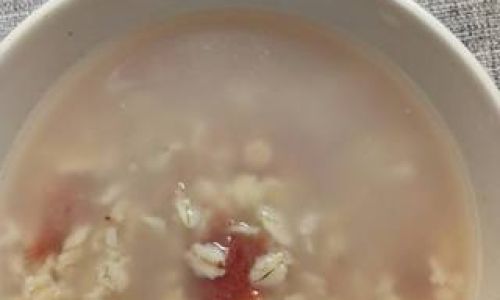
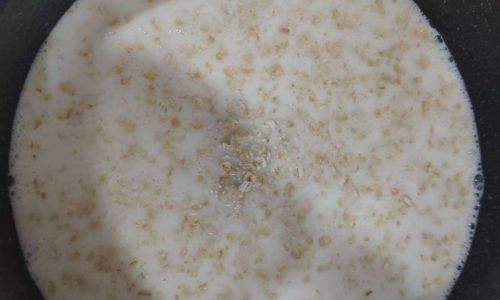
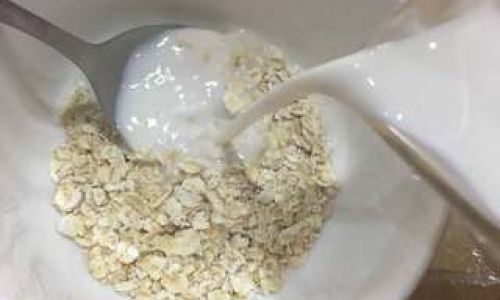
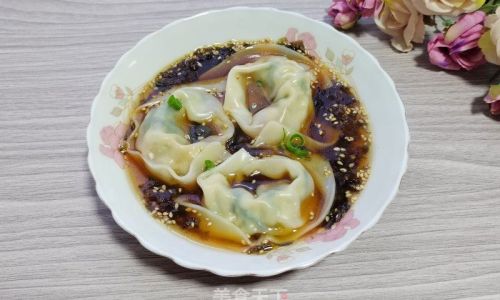
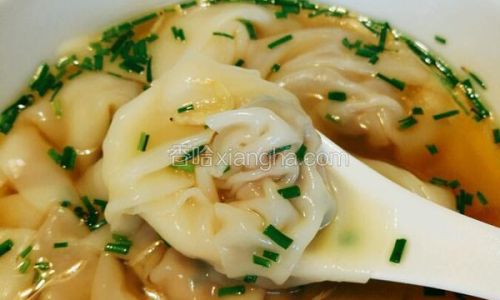
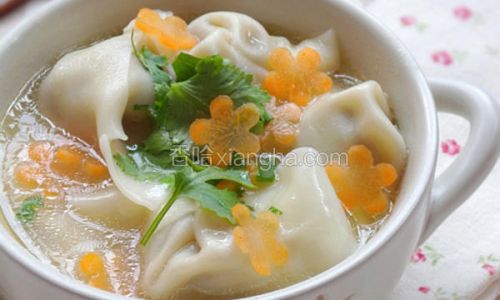
0 comments